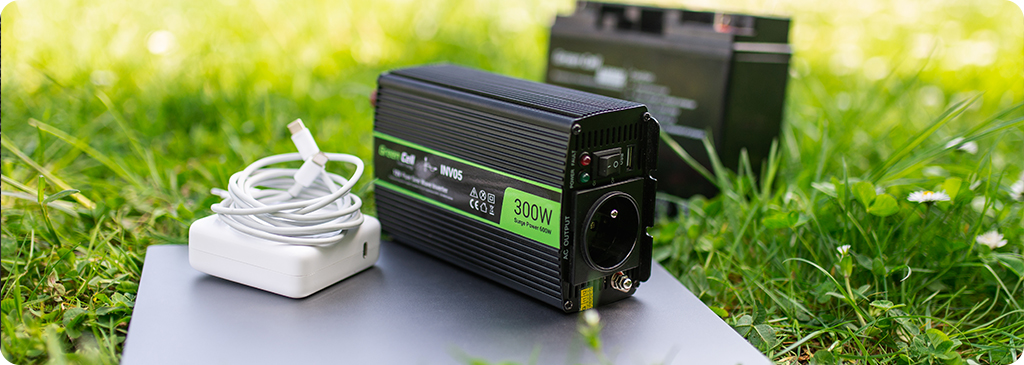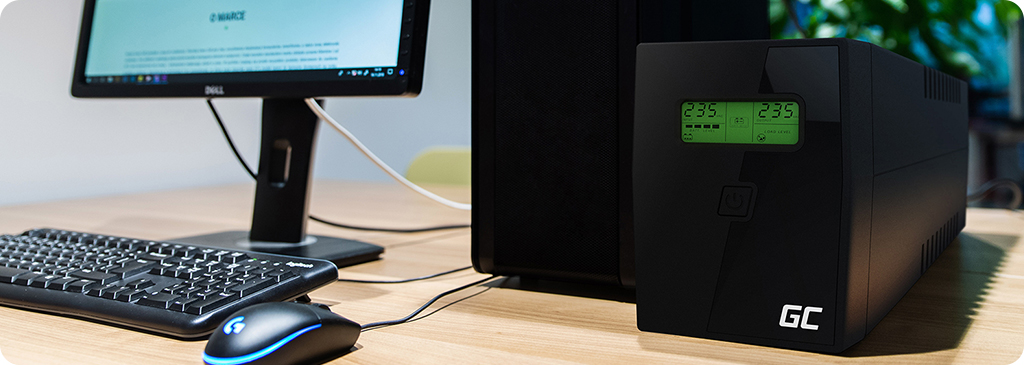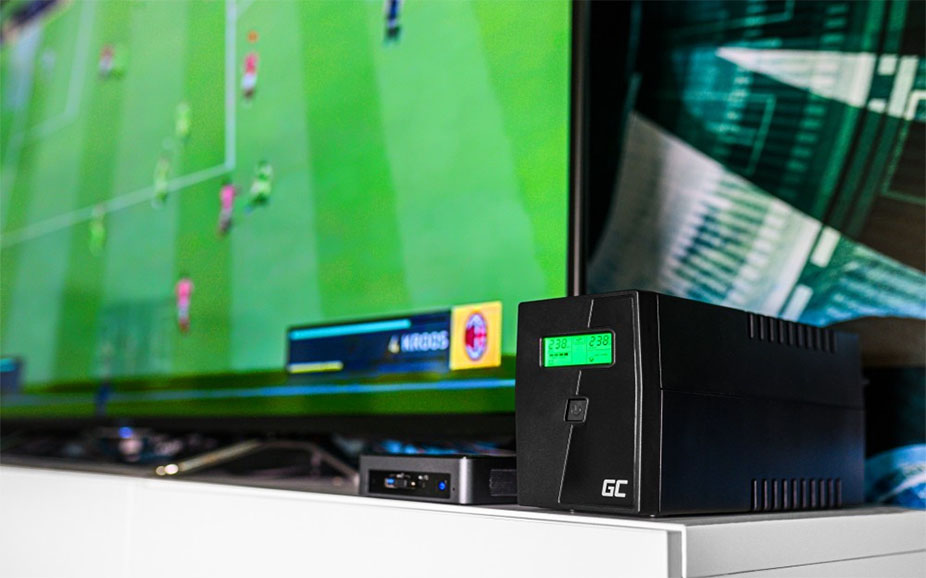Domestic Use of UPS & Inverters
Both the UPS and the inverters are very popular to use in the home. Both devices are therefore suitable to use to support the power supply in the event of a power failure. It is true that we see that there is a lot of uncertainty when it comes to choosing these products. Is an inverter the same as a UPS? If not, in which cases should you use which device? If you want to get answers to these questions and more questions, it is useful to read this article carefully. We have listed the most important information for you.
What is an inverter?
First, let's take a look at what an inverter actually is. An inverter is a special device that converts direct current (DC) into alternating current (AC). This device can be used as a device that receives power from DC power sources such as solar energy and batteries. This then converts it into alternating current for the home. However, it is also possible to opt for a utility-interactive inverter that is part of a larger circuit. For example, you can think of a power supply unit or UPS. An inverter is not intended to generate electricity. In addition, it also does not store electricity. However, it is possible that the inverter is connected to power sources such as batteries to ensure that the power supply is supported.
Runtime depends on battery power. If the number of devices using the inverter increases, their runtime will be lower than usual. It is possible to use batteries to improve the inverter runtime. You can use this to store the DC power. The inverter supplies the AC power to the electrical equipment when the power is not available. It is used for controlling the speed of the motor. In a power grid, the inverter supplies power to the distribution system. In some cases it is still used for induction heating. This is because it is able to convert low-frequency current into high-frequency current

And what is a UPS?
Now that you know what an inverter is, it is useful to look at the function of a UPS. UPS stands for an 'uninterrupted power supply'. This can also be translated as an uninterrupted power supply. A UPS is a hardware device that provides you with a backup power source if the primary power source fails. It can also be used when there is temporarily less power available. A UPS system consists of a number of components. A basic UPS system includes a battery, a charger, an inverter, and a transfer switch. The converter is mainly intended to convert direct current into alternating current.
The main differences at a glance
So there are a number of differences between the two devices. To give you a little more insight into the differences between them, we have decided to include the main differences below:
The UPS is an electrical device that has a rectifier to provide emergency power to the system. An inverter converts direct current into alternating current.
During a power outage, the UPS immediately transfers from mains to battery, while the inverter has a time delay.
The UPS provides the emergency electrical power and the inverter provides the electronic emergency power.
The UPS is directly connected to the household appliances, while the inverter is connected first to the battery and then to the appliances.
The UPS is more expensive compared to the inverter.
The UPS provides the backup power for a few minutes, while the inverter provides the power for a longer period of time.
Do I need a UPS or an inverter?
A question many people ask is whether they need a UPS or an inverter. Many large companies have applications that must be always on. For these businesses, a UPS is critical to keeping everything running during an outage. However, this is different for domestic use. It is therefore not so easy for people who are looking for a device for their home to make a choice. This depends entirely on what you want to do with your purchase. If you use inverters for normal electrical gadgets in the house whose operation is not affected by the long switching time, then one inverter is enough to choose. For most electrical appliances in the house, the delay is not so well tolerated. However, it is useful to use a UPS for critical devices such as computers. This ensures that you can make a backup if necessary.

Do I need a UPS if I already have an inverter for my home?
Some people wonder whether the inverter can handle the power cut of the PC. They are considering adding a UPS to the system. If you don't want to use the PC on the main inverter but want to connect it to a UPS, this is a good idea. Just be aware that some UPS units do not work well with an inverter. Here you can think of a traditional UPS and an outdated inverter. Due to the difference in sine waves, this can cause damage to the computer. If the inverter is combined with a UPS, a pure sine wave inverter and the UPS can handle the sine wave, then it is possible to use both again.
Although it is quite a technical topic, we hope that the information in this article will help you better understand what to choose. Both the inverter and the UPS offer advantages for your home. This means that both can be used to improve your power supply during certain disruptions. If you want to learn a lot more about the role of the UPS or the inverter, then you're in luck. Here on the site there are many more articles that you should definitely read.







